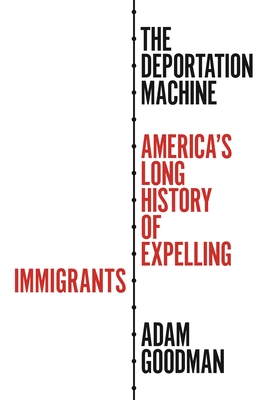Expedite your nonfiction book discovery process with Readara interviews, summaries and recommendations, Broaden your knowledge and gain insights from leading experts and scholars
In-depth, hour-long interviews with notable nonfiction authors, Gain new perspectives and ideas from the writer’s expertise and research, Valuable resource for readers and researchers
Optimize your book discovery process, Four-to eight-page summaries prepared by subject matter experts, Quickly review the book’s central messages and range of content
Books are handpicked covering a wide range of important categories and topics, Selected authors are subject experts, field professionals, or distinguished academics
Our editorial team includes books offering insights, unique views and researched-narratives in categories, Trade shows and book fairs, Book signings and in person author talks,Webinars and online events
Connect with editors and designers,Discover PR & marketing services providers, Source printers and related service providers

The Deportation Machine: America's Long History of Expelling Immigrants
History > United States - General
- Princeton University Press
- Hardcover
- 9780691182155
- 9.3 X 6.2 X 1.3 inches
- 1.56 pounds
- History > United States - General
- (Single Author) Asian American
- English
Readara.com
Book Description
The unknown history of deportation and of the fear that shapes immigrants' lives
Constant headlines about deportations, detention camps, and border walls drive urgent debates about immigration and what it means to be an American in the twenty-first century. The Deportation Machine traces the long and troubling history of the US government's systematic efforts to terrorize and expel immigrants over the past 140 years. This provocative, eye-opening book provides needed historical perspective on one of the most pressing social and political issues of our time.
In a sweeping and engaging narrative, Adam Goodman examines how federal, state, and local officials have targeted various groups for expulsion, from Chinese and Europeans at the turn of the twentieth century to Central Americans and Muslims today. He reveals how authorities have singled out Mexicans, nine out of ten of all deportees, and removed most of them not by orders of immigration judges but through coercive administrative procedures and calculated fear campaigns. Goodman uncovers the machine's three primary mechanisms--formal deportations, voluntary departures, and self-deportations--and examines how public officials have used them to purge immigrants from the country and exert control over those who remain. Exposing the pervasive roots of anti-immigrant sentiment in the United States, The Deportation Machine introduces the politicians, bureaucrats, businesspeople, and ordinary citizens who have pushed for and profited from expulsion.
This revelatory book chronicles the devastating human costs of deportation and the innovative strategies people have adopted to fight against the machine and redefine belonging in ways that transcend citizenship.
Author Bio
Adam Goodman is an assistant professor in the Latin American and Latino Studies Program and in the Department of History at the University of Illinois at Chicago. His research and teaching interests include migration history and policy; Mexican American and Latina/o history; border and borderlands history; and recent U.S., Mexican, and Central American history.
Goodman's book, The Deportation Machine: America’s Long History of Expelling Immigrants (Princeton University Press, 2020), traces the troubling history of the US government’s systematic efforts to terrorize and expel noncitizens over the past 140 years. The book uncovers public officials' use of force, coercion, and fear to purge immigrants from the country and exert control over those who remain. It introduces the politicians, bureaucrats, businesspeople, and ordinary citizens who have pushed for and profited from expulsion.
The Deportation Machine chronicles the devastating human costs of punitive enforcement policies and the innovative strategies people have adopted to fight against removal and redefine belonging in ways that transcend citizenship.
Goodman has written articles, essays, and reviews that have appeared in academic venues like the Journal of American History and the Journal of American Ethnic History, and in popular outlets such as The Nation and the Washington Post. He has received support for his work from the National Endowment for the Humanities, Fulbright Program, and Immigration and Ethnic History Society, among others.
In 2017, Goodman helped organize the #ImmigrationSyllabus project. He co-organizes the Borderlands and Latino/a Studies Seminar at the Newberry Library and the Global Migration Working Group at UIC, where he also serves as a faculty advisor to the Fearless Undocumented Alliance.
Before moving to Chicago, Goodman was a Provost’s Postdoctoral Fellow in the Humanities at the University of Southern California in Los Angeles and a visiting scholar at the Universidad Nacional Autónoma de México in Mexico City. He received his Ph.D. in history from the University of Pennsylvania.
Source: University of Illinois Chicago - Latin American and Latino Studies
Videos
No Videos
Community reviews
No Community reviews

